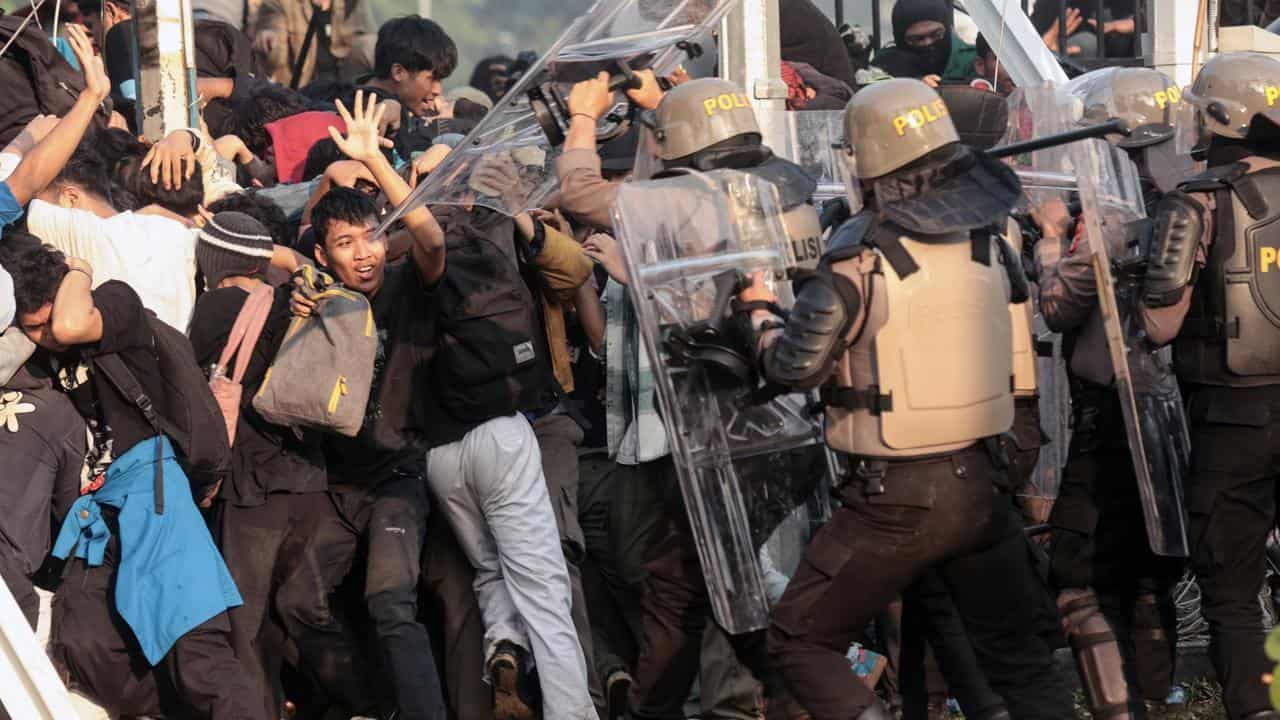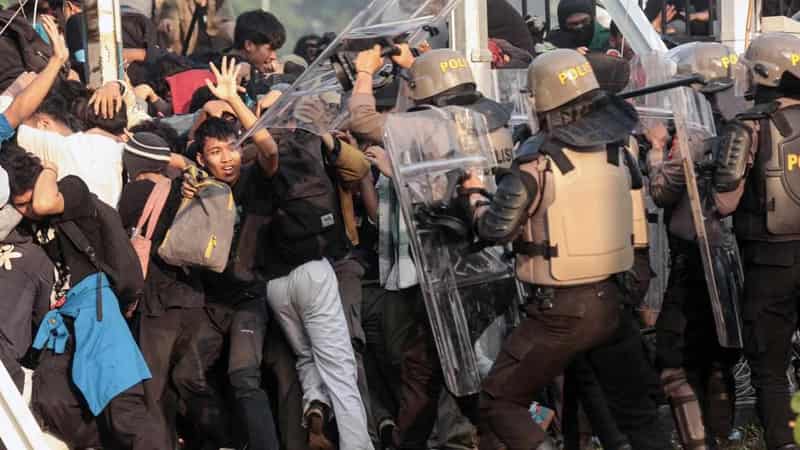
Thousands of people have rallied in several cities in Indonesia, pressuring its poll body to issue rules for regional elections amid outrage over an attempt by parliamentary allies of President Joko Widodo to change them in their favour.
The protests on Friday followed a day of demonstrations in which 301 people were detained and tear gas and water cannon used to disperse angry crowds outside parliament, which on Thursday shelved its controversial plan to amend eligibility rules on candidates, citing absence of a quorum.
The protests were accompanied by fury on social media at the influential Jokowi, as the president is known, who stood to gain from proposed changes that would have allowed his son to seek office in Central Java, and blocked an influential government critic from running for the high-profile post of Jakarta governor.
The demonstrations capped a dramatic week in politics in which anger has mounted over what Jokowi's critics say is an attempt to further consolidate his power as he prepares to make way for successor Prabowo Subianto in October.
Jokowi's popularity and outsized influence after a decade in charge was instrumental in Prabowo winning February's election by a big margin, in what was widely seen as a quid pro quo to ensure the outgoing leader retains a political stake long after he leaves office.
Protests were held outside the election commission in Jakarta on Friday, as well as in the cities of Medan, Makassar and in Surabaya, where students threw rocks and bottles at police, calling for the poll body to issue the rules.
Jokowi will play when he leaves office, but he is expected to wield influence through the Golkar Party, the largest member of Prabowo's parliamentary alliance, which on Wednesday appointed the president's right-hand man Bahlil Lahadalia as its leader.
Jokowi has yet to comment on the protests.
On Wednesday, when asked about the attempt by parliament to change the election rules, he said he respected Indonesia's democratic institutions.
The push by MPs to change the election rules would have effectively been a reversal of a Constitutional Court decision on Tuesday, which upheld the minimum age of 30 for candidates, and made it easier for parties to make nominations.
That ruling opens the door for Prabowo's presidential election rival Anies Baswedan to be nominated for Jakarta governor, a post he held from 2017 to 2022, but means Jokowi's 29-year-old son Kaesang Pangarep cannot run in regional polls.
The election commission would issue rules in line with Tuesday's court ruling, but after a consultation with parliament next week, its acting chief Mochammad Afifuddin said.









